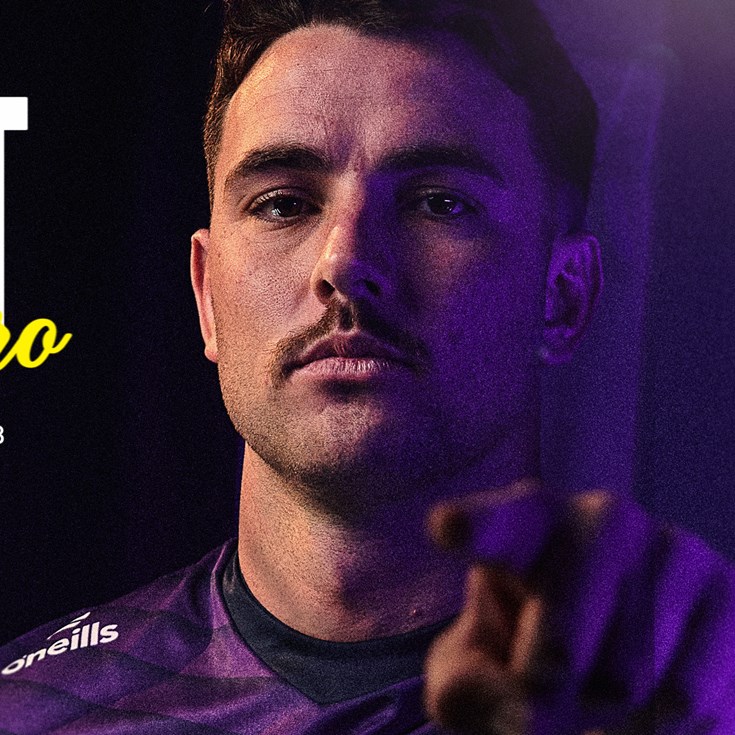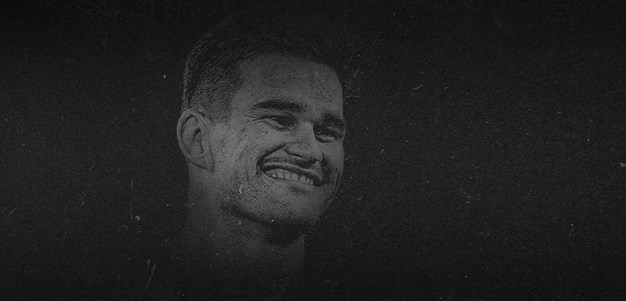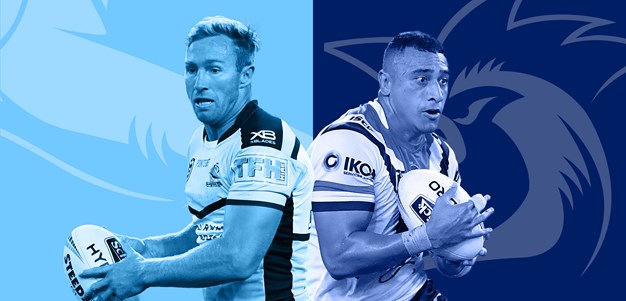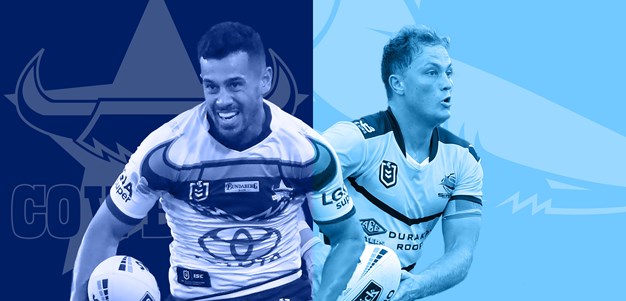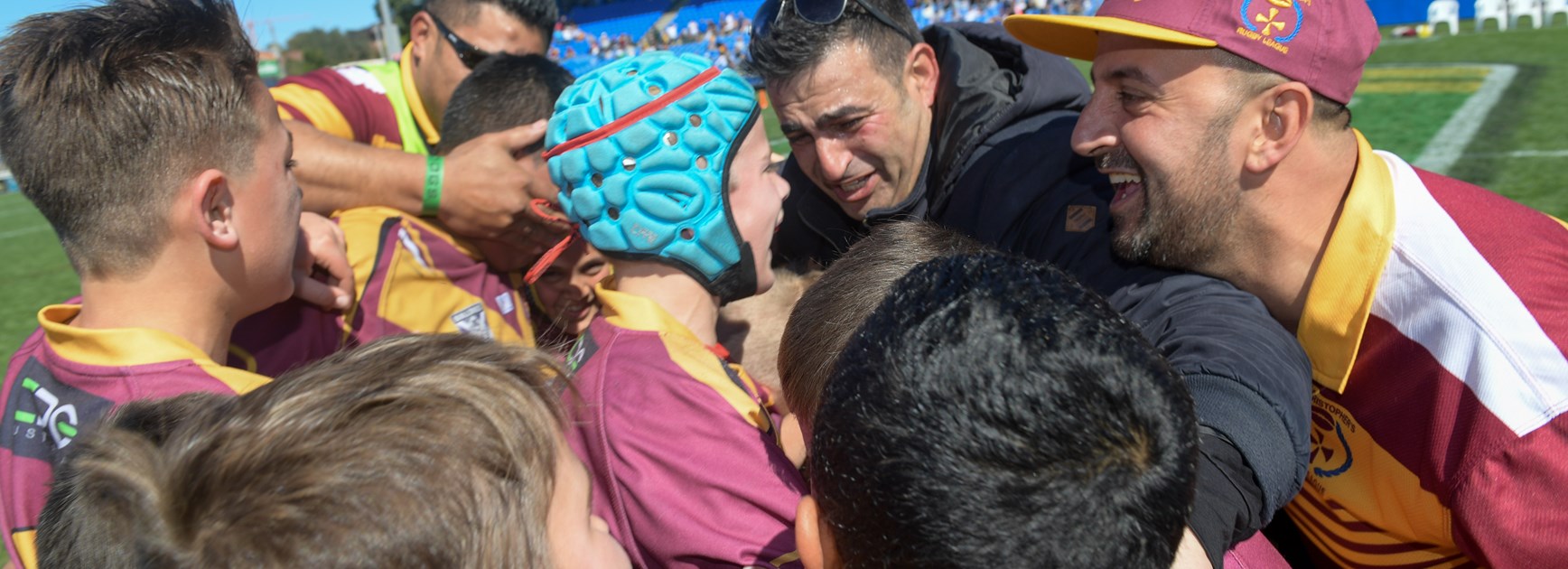
Penrith coach Ivan Cleary believes delaying the introduction of tackling and grand finals in some junior competitions will encourage more boys and girls to play rugby league and produce better players.
Cleary was on a committee that recommended a raft of changes aimed at increasing participation and retention numbers at junior level, including no tackling until players complete a Tackle Ready program in Under 7s, which former Raiders, Cowboys and Titans coach Neil Henry helped develop.
Another key aspect of the new Player Development Framework is the elimination of finals until Under 13s competition in a bid to encourage an emphasis on teaching skills rather than winning.
After being trialled in South-East Queensland and Victoria last year, the modifications have been adopted for the coming season in all states except NSW and Cleary believes they will provide significant benefits for the game by focusing on skills development.
"Whether you agree on all the stuff that has been done or not, I think it is worthwhile for everyone to take a breath and understand that the whole reason we are trying to do this is to get playing numbers up and also to improve the sport," Cleary said.
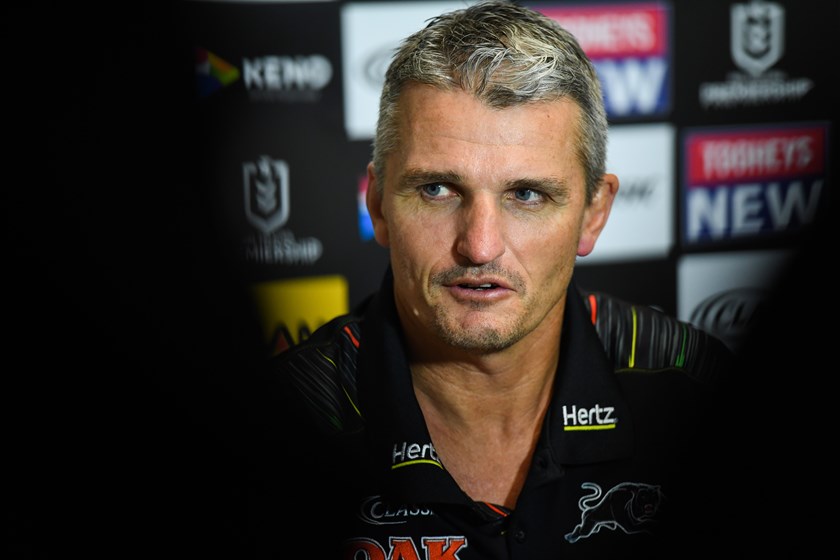
"Rugby league is the kind of sport where you can just dominate through physicality. There are guys that get to the elite level essentially through physical attributes, whether it be size, speed, stamina or a combination of all of them, but not necessarily skill.
"Some of our biggest superstars and players all the kids love to watch have come from touch backgrounds, like Benji Marshall, Shaun Johnson and Matt Moylan, and it is no coincidence that those guys have got extreme skills."
Cleary said that the elimination of finals for age groups up to and including Under 12s would enable young players to be more creative without the pressure of knowing a mistake could cost their team a win.
However, not having a trophy on offer for the grand final winners wouldn't mean that matches weren't competitive.
"If you play your mate in a game of table tennis there is no trophy on offer but you still want to win," Cleary said.
"I have seen a lot of junior footy games and one thing that has always bothered me is that a lot of kids get taught not to pass the ball in case someone drops it so there is more incentive for coaches to teach kids how to play and enjoy the game rather than focus on the result.
"If there is less emphasis on winning and more emphasis on teaching kids to take a risk with the ball that is an upside to me.
"Teaching the big kid to throw a pass is only going to help him too because at some point if he is good enough and he keeps going through the ranks he is going to need more than just size."
Marshall magic dominates Knights
Players are also being taught tackling techniques and how to fall safely when tackled through a six session Tackle Ready program for Under 7s, which was introduced in Brisbane, the Gold Coast, Ipswich, Toowoomba and Victoria last season.
"I think there are a lot of misconceptions out there that we are just going to stop kids tackling – that's not what it's about at all, and in fact it is the opposite," Henry said. "It's about correct and safe techniques for the tackle version of our game.
"It's actually putting an emphasis on teaching young boys and girls how to move their body and have a gradual build up to developing a skill set towards tackling and also landing safely when they are being tackled."
With participation and retention rates among boys declining on an annual basis, Griffith University were engaged to conduct a study in 2017 that led to the formation of a committee, which included Cleary, Ben Ikin, Greg Brentnall, Peter Mulholland, Brad Donald, Barrie-Jon Mather and Keith Onslow.
If you play your mate in a game of table tennis there is no trophy on offer but you still want to win
Ivan Cleary
The NHL had grappled with similar drop-off over concerns about the physicality of ice hockey and introduced modifications a decade ago that have seen significant increase in participation numbers.
"We have ended up developing this gradual approach of learning the skills of tackling and carrying the ball into contact," Henry said.
"We are finding that the feedback from the programs has been very positive with parents saying 'my son or my daughter feel a lot more confident playing the game because they now have the skill set to go out there and effect a tackle'. It's also a valuable program for later starters to the game."
Players have the option of continuing to play a tag version of rugby league beyond Under 7s and can move to tackle at a later age if they choose.
"If we offer non-contact or minimal contact versions of the game then you can keep those kids in the game from a young age and do a Tackle Ready program that leads into the contact version," Henry said.
"We are not producing thinking players so I think there is a real shift towards making it more fun at junior levels because kids were saying that 'it is not that enjoyable', 'it is over competitive', 'I don't feel valued' or they had negative experiences around pressure to win, which is normally external.
"This is about coach education and it is going to take a while but it is certainly here to stay and it is great that Queensland have adopted the framework and are running with it."

